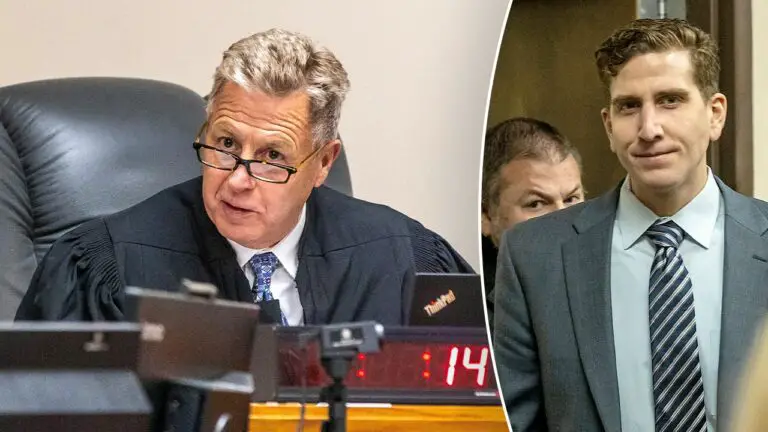Courtroom Cameras Debate in Idaho Student Murder Case
Bryan Kohberger, the suspect in the Idaho student murders, is set to appear in court today. The focus of the day: should cameras be allowed in the courtroom for future proceedings?
Longtime media lawyer and general counsel to the Radio & Television News Association of Southern California, Royal Oakes, expressed his skepticism about both sides’ desire to exclude camera coverage.
The defense argues against media presence, fearing it might lead to juror bias and violate a prior directive from Judge John Judge, given during a June 27 hearing. Oakes believes the solution isn’t to stop transparency but to penalize those who violate court rules.
Prosecutors, on the other hand, worry that cameras could discourage witnesses or infringe on Kohberger’s right to a fair trial under the Sixth Amendment, a concern Oakes dismisses.
Oakes firmly believes that the general public, who pays for the courtroom and elects lawmakers defining courtroom rules, has a right to see the legal system at work. However, the final decision rests with the judge.
Over the years, high-profile trials have debated this issue, with mixed results. Here’s a look at a few examples:
O.J. Simpson Trial
The infamous O.J. Simpson trial for the alleged murder of Nicole Brown Simpson and Ronald Goldman was widely televised in 1995. It attracted millions of viewers and ultimately ended with Simpson’s acquittal.
Ted Bundy Trial
Ted Bundy’s 1979 Florida murder trial, one of the first nationally televised trials in the United States, was a precursor to reality TV. Bundy was found guilty of multiple murders and later executed.
Casey Anthony Trial
In 2011, Casey Anthony was acquitted of murder charges in the death of her daughter, Caylee, after a high-profile, month-long trial. She was found guilty of a lesser charge.
Alex Murdaugh Trial
Alex Murdaugh, a South Carolina lawyer, was convicted in 2021 for the shooting deaths of his wife and son. The trial attracted significant media attention and viewership.
Legal experts, like David Gelman, emphasize that the decision to allow cameras in courtrooms ultimately rests with the judge. They argue that the public has a right to transparency, but it’s becoming increasingly challenging to sequester jurors in today’s digital age.
A hearing to decide whether cameras will be allowed in Kohberger’s case is scheduled for 2 p.m. PT.
[Reporter: Michael Ruiz]

